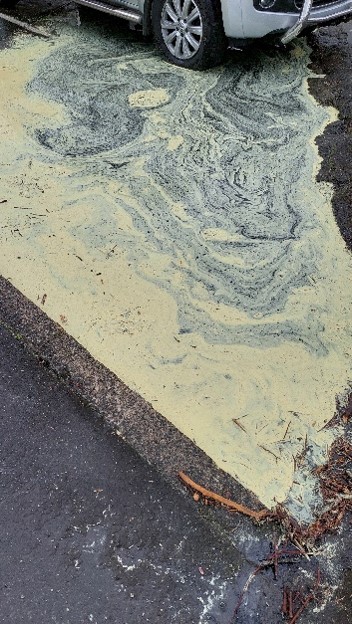Airborne dust can be produced naturally or from human activity.
It is usually larger dust particles that cause issues – they are more obvious when they coat cars and buildings.
Dust drifting on the wind can affect neighbouring properties, particularly in higher density residential areas. It can cause make a mess, reduce visibility and make the area less pleasant. The fine solids that make up dust can include soil, pollen and industry discharges. Otago has many unsealed roads and residential development, which can be a source of dust. Pollen powder can also coat waterways and streets at certain times of the year. Contact your health professional if you are allergic to wind-borne pollen.
Sources of nuisance dust in Otago could include:
- natural sources such as dry lake and riverbeds
- wind-blown dust from stockpiles
- land and soil disturbance associated with subdivision development, construction, land clearance, forestry and cultivation
- landfills and other waste-handling facilities
- industrial operations
- stonemasons, mineral processing, cement handling and batching, and fertiliser storage and processing.
The Regional Plan: Air for Otago (the Air Plan) helps us manage Otago’s air resource. It has policies and methods (which include rules) to address the air quality issues in Otago.
April 2009
PDF | 354 KB
April 2009
PDF | 287 KB
April 2009
PDF | 280 KB
April 2009
PDF | 304 KB
April 2009
PDF | 324 KB
April 2009
PDF | 1 MB
April 2009
PDF | 604 KB
April 2009
PDF | 190 KB
April 2009
PDF | 183 KB
April 2009
PDF | 309 KB
April 2009
PDF | 710 KB
April 2009
PDF | 204 KB
April 2009
PDF | 403 KB
April 2009
PDF | 753 KB
April 2009
PDF | 225 KB
April 2009
PDF | 528 KB
April 2009
PDF | 485 KB
April 2009
PDF | 183 KB
April 2009
PDF | 225 KB
April 2009
PDF | 905 KB
April 2009
PDF | 250 KB
April 2009
PDF | 313 KB
Once dust is in the air, it can be hard to control. The best way to manage dust is to make sure it isn’t released in the first place.
Methods could include:
- suppressing dust with water carts or sprinklers on dry, windy days
- using environmentally responsible chemical products to stabilise the ground
- stabilising the surface with aggregate, geotextile materials or mulch
- improving the surface – for example, by sealing with asphalt
- revegetating or grassing the area
- creating defined entry/exit points to land development sites
- limiting the height of stockpiles and stabilising them
- limiting work that generates dust when it is dry and windy
Note: The use of waste oil as a dust suppressant is prohibited in Otago.
Dust is complicated:
- some people are more affected by dust than others
- it’s difficult to easily measure dust, especially at low concentrations
If you have an issue with dust, we encourage you to talk with the people creating it as a first step. Most people are reasonable and willing to discuss the problem, and we find that most issues can be resolved this way.
You can report nuisance dust to our 24/7 pollution hotline on 800 800 033 or email pollution@orc.govt.nz.
It’s helpful if you can answer these questions:
- what does it look like?
- is any particulate/dust coming onto your property?
- how is it affecting you and making you feel? (coughing)
- what are the weather conditions? (calm, westerly wind)
- on a scale of 1-10, how intense is the dust?
- is this still happening?
- for how long did the dust occur for?
- is the dust a one-off, intermittent (coming and going) or continuous?
If you cannot resolve the dust issue with the people causing it, we will assess the problem. We will consider any previous confirmed dust complaints for the same site and the Ministry for the Environment’s Good Practice Guide for Assessing and Managing Dust. You can read the guide yourself on the MofE website environment.govt.nz.


Good practice guide for assessing and managing dust
This guide provides information on how to assess and manage dust emissions from sources such as quarrying, aggregate crushing, abrasive blasting, sealed and unsealed surfaces, and material stockpiles.

The Regional Plan: Air for Otago
The Regional Plan: Air for Otago (the Air Plan) assists us in managing Otago's air resource.

Report dust & air pollution
If you notice dust or air pollution in Otago, call the Pollution Hotline which is staffed 24/7 on 0800 800 033 to report it or fill in the form.
